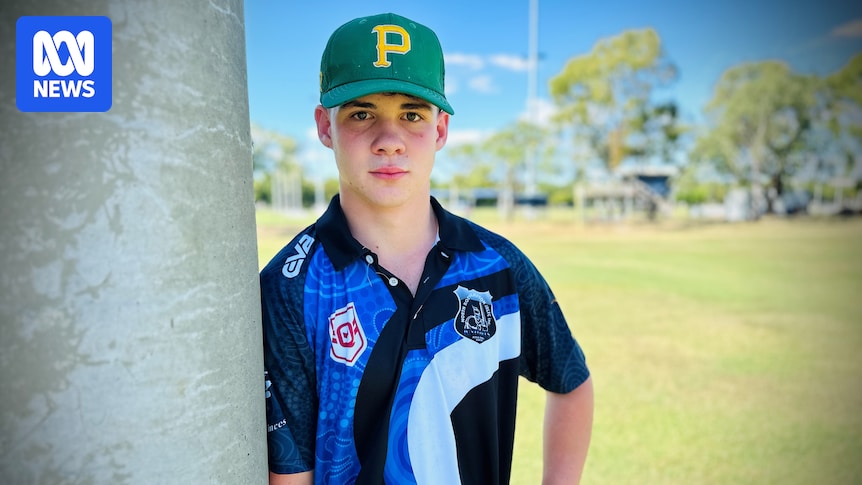
Riley Mansfield, a promising young rugby player from Queensland, has made the difficult decision to retire from the sport at just 15 years old. This decision follows a series of concussions that have raised significant concerns about the safety of young athletes in contact sports. Riley, who had dreams of playing for the North Queensland Cowboys like his idol Johnathan Thurston, was on track to achieve his goals through the elite Dolphins Cup competition.
“I wish I could play every time I watch the footy on TV at home … I’m like, ‘God, I miss it,'” Riley expressed. “I want to be back out there.” His journey in rugby began at the age of seven with the North Knights in Rockhampton, but repeated head injuries have forced him to hang up his boots.
Concussion Concerns and Parental Worries
Riley’s mother, Kristy Mansfield, described the severity of her son’s concussions, which left him with debilitating symptoms. “He was suffering significant kinds of symptoms, so very, very light sensitive, noise sensitive, severe headaches and he’s got a pretty strong pain threshold,” she explained. The recovery process was lengthy, requiring about six weeks before Riley could return to normal activities, including school.
“As a mum, it’s been hard because just knowing how much your son loves football and playing and he’s such an active kid,” Kristy added. The Mansfield family’s experience highlights the growing concerns about the impact of concussions on young athletes.
Expert Opinions on Tackling Age
Amid these concerns, experts are calling for changes in how contact sports are played by children. Joel Garrett, a lecturer in exercise science and physiology at Griffith University, has suggested that tackling should not be introduced until children are at least 12 years old. “One of the big reasons is they have obviously a larger head and weaker neck muscles, which puts them at a little bit more risk of some of those rotational linear forces,” Garrett explained.
“An eight-year-old, for instance, may struggle with the rapid judgements required to align their shoulder and brace their neck properly when tackling a moving player. By the age of 12 they may have the ability to make those last-second changes if need be and execute a good tackle that’s both safe for them but also the person they’re tackling.”
Garrett emphasizes the need for a structured progression to full-contact tackling, rather than an outright ban, to ensure the safety and development of young players.
A Family’s History with Rugby Injuries
The Mansfield family is no stranger to the dangers of rugby. Riley’s father, Andrew, suffered a broken neck at the same age and on the same field in Mackay. “That was my last game of footy,” Andrew recalled. “I was the width of a piece of hair to not walking ever again.”
Following consultations with neurologists, Riley has been advised to avoid contact sports for at least five years. Kristy hopes that the growing awareness and education around concussions will continue to influence sporting codes across the country.
“Riley’s grown up with footy and it’s great to see that the sport is taking it seriously and ensuring that the players are taking the time out they need to be able to recover before they go back and play again,” she said.
New Beginnings in Softball
With his rugby dreams on hold, Riley has redirected his athletic talents to softball, where he has already achieved state and national team selection. Every weekend, he joins his parents on the softball diamonds, showcasing his skills and passion for the sport.
“He’s got a massive future [in softball] and can whack a golf ball too … but still can’t out drive Dad yet,” Andrew proudly noted.
The Mansfield family’s story underscores the critical need for ongoing dialogue and action regarding the safety of young athletes, as well as the resilience and adaptability required when dreams take unexpected turns.






